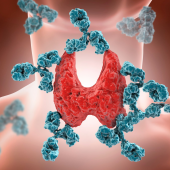Today, we're going to talk about nutrigenetic testing and how practitioners can use this tool to better understand what nutritional strategies and supplements work best for each individual patient based on their genetic profile. Our mission is to give you the information you need to take better care of your patients, which is why we're going to do a series of programs on Nutrigenetic testing. This program is going to give you a foundation on the subject. And in the coming weeks, we'll take a deeper dive into the science and how to interpret the data.
Our guide today is Dr Charles Desmarchelier. Dr Desmarchelier is an Assistant Professor at the Center for Cardiovascular and Nutrition Research, a joint research unit with Aix-Marseille University, INSERM and INRAE, France. Dr Desmarchelier is a global expert in understanding how genetic variations affect the effectiveness of nutritional components in health promotion. He is joining us today from his lab in Marseille, France. He is joining us today from his lab in Marseilles, France.
Key Takeaways
- Why Nutrigenetics? The goal of nutrigenetics is to uncover characteristics of your unique DNA sequence, which will help a practitioner provide you with a more personalized therapeutic recommendation based on your genetic characteristics.
- Currently, the dietary recommendations we offer are established for the whole population. The ultimate goal of nutrigenetic testing is to provide dietary recommendations which are adapted to an individual's genetic characteristics.
- Disease Interactions Nutrigenetics testing can be used to uncover something simple like lactose intolerance. It’s a fairly simple example, it depends on one gene. But we can also investigate more complex phenotypes which depend on many genes. For example, the interaction between diet and the development of cardiovascular disease. We can predict whether you should lower your LDL cholesterol or if you’ll accrue a greater benefit by eating protein and saturated fatty acids.
- Understanding SNPs Everybody has genetic variations. It's something that is completely normal. And the way that we can get insight into those genetic variations is through SNPs, which are single nucleotide polymorphisms. A SNP is a natural genetic variation that exists across all members of a population. Some of these SNP variations can increase risk of some debilitating diseases.
- Disease Prevention When we do the Nutrigenetic tests we’re actually testing against specific SNPs, which are the most common genetic variables that have been shown to map to a specific condition. Nutrigenetics can help a practitioner establish a diagnosis for patients. If you have the genetic information, you can work to prevent the onset of the disease many decades before the onset of symptoms. You can actually provide recommendations to limit the risk over a long period of time.
Key Quotation
"Just because you carry a certain set of genes does not necessarily mean you're going to develop the disease, because there is a complex interaction between your genes and your environment, including nutrition. And this is where nutrigenetics is interesting because it gives us some clues about how to modify your diet and to adapt it to your genetic characteristics."
Dr Charles Desmarchelier
Surprising Fact
All humans share a very common genome. We are 99 percent identical from one person to another. That's why we belong to the same species. Genetic variations result in differences between the colour of the eyes, or the colour of the hair. But we have many, many different kinds of genetic variations.
==
The opinions expressed in this Nutramedica program are those of the guests and contributors. They do not necessarily reflect the opinions of Nutritional Fundamentals For Health Inc.
This video is intended for licensed or registered health professionals and students of health professions only. These statements have not been evaluated by the Food and Drug Administration. Information contained in these programs is not intended to diagnose, treat, cure or prevent any disease.



